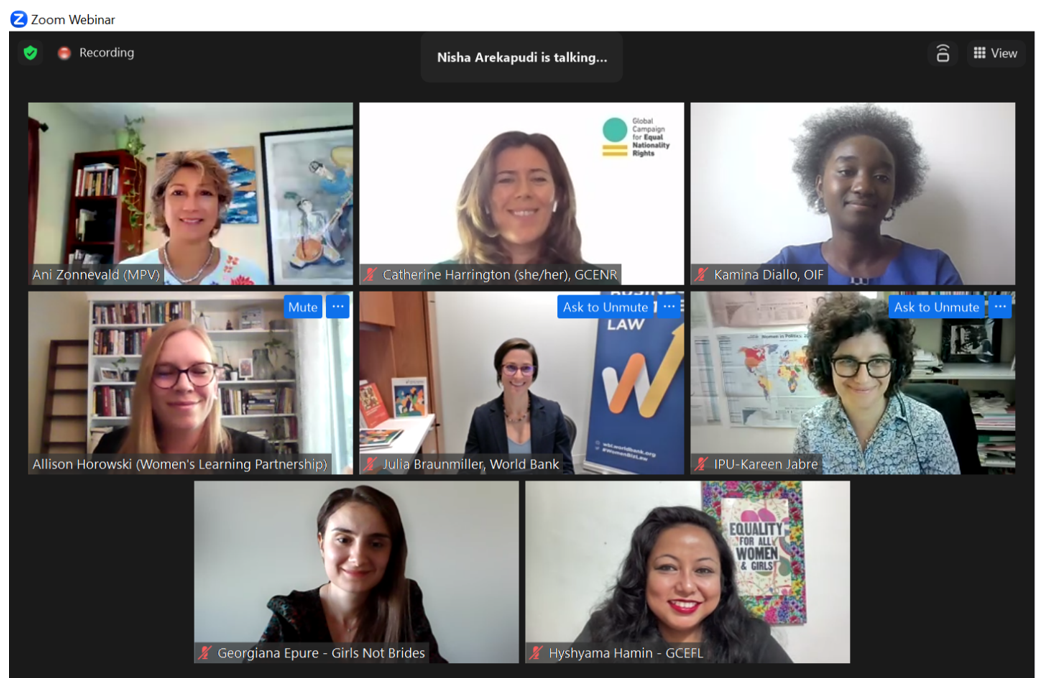 Young woman working with a laptop at her warehouse desk. | © shutterstock.com
Young woman working with a laptop at her warehouse desk. | © shutterstock.com
Last week marked the half-way point in the implementation of the SDGs. The SDG Summit recognized that only 15 percent of these Goals are on track. The lack of progress holds especially true for SDG 5 on gender equality. A recent World Bank working paper found that across all 231 SDG indicators, the 50 gender-related SDG indicators are disproportionately underreported.
Critical to achieving this goal is SDG indicator 5.1.1, which assesses whether or not legal frameworks are in place to promote, enforce, and monitor equality and non-discrimination on the basis of sex. The World Bank Group — through the Women, Business and the Law project — is one of the co-custodian agencies for this indicator, together with UN Women and the OECD Development Centre. Data are reported by governments, and after having been evaluated by the three co-custodians, are now available for 120 countries. These data reveal whether women have equal opportunities to work in various industries, choose their profession freely, and whether there are legal safeguards against domestic violence, among other vital aspects of gender equality.
Panelists at the event: “Accelerating Action toward Equality in Law for Women and Girls by 2030” organized by UN Women on September 14, 2023.

Leveraging Data for Progress
The Women, Business and the Law index is a longstanding and essential tool revealing gaps in countries’ legal frameworks, paving the way for policy reforms. Once these gaps are identified, countries can draw inspiration from the successful gender equality reforms undertaken by others, informing their own legal drafting processes and fostering international dialogue. Such good practices in legislations based on SDG indicator 5.1.1 data have been compiled by Women, Business and the Law, UN Women, and the OECD Development Centre for 95 countries.
Empirical evidence produced by Women, Business and the Law illustrates that legal reforms yield positive outcomes not only for women but also for their families and poverty reduction. For example, greater legal equality is associated with a larger supply of female labor, a smaller gender wage gap, higher levels of female entrepreneurship, and a greater number of women in managerial positions. Data on legal reforms that countries have adopted is available from 1970 until today. Further, we find that there has been significant progress in the past 53 years: the overall index representing legal rights that women have compared to men increased from less than 50 percent in 1970 to 77 per cent today (figure 1).
Figure 1: Significant progress on legal equality in the past 53 years across all regions

Despite significant progress, there is an urgent need to accelerate the pace of reforms. We find that in the past year, the global pace of reforms toward equal treatment of women under the law has slumped to a 20-year low. Countries seem to be experiencing reform fatigue, particularly when it comes to women’s mobility and access to assets. While codified laws are essential for women’s empowerment, we must complement them with resources and policy measures to ensure their effectiveness. To provide a comprehensive assessment of the environment for women in countries around the world, Women, Business and the Law is set to introduce next year a new conceptual framework geared toward measuring the implementation of laws in practice.
Utilizing Women, Business and the Law Data for Progress
With the recent slowing pace of reform, it will take another 50 years or more to reach legal gender parity everywhere, meaning that a young woman starting to work today will not see equal rights in her working life. This is why we recently convened with our partners in the Strategic Coalition on Equality in Law for Women and Girls by 2030 to discuss concrete steps toward our commitments.
Numerous examples from World Bank projects demonstrate the practical application of Women, Business and the Law data in operations aimed at women’s empowerment. For example, in Egypt, a World Bank team supporting private sector development and women's economic inclusion provided technical assistance to the Central Bank of Egypt to issue a circular prohibiting gender-based discrimination in access to financial services. The United Arab Emirates, leveraging our data and analysis, became the first country in the Middle East and North Africa region to enact legislation on paid parental leave for private sector employees, introduce paid paternity leave, mandate equal pay for work of equal value, and remove restrictions on women’s mobility in the Personal Status Law.
Women cannot afford to wait another half-century for equality. Let us use the momentum of this half-way point in the implementation of the SDGs to accelerate the pace of reform in advancing gender equality!
Join us!
- Download the Women, Business and the Law 2023 report for empirical evidence
- Consult country-specific snapshots for gaps analysis
- Work with your government to report on SDG 5.1.1


Join the Conversation